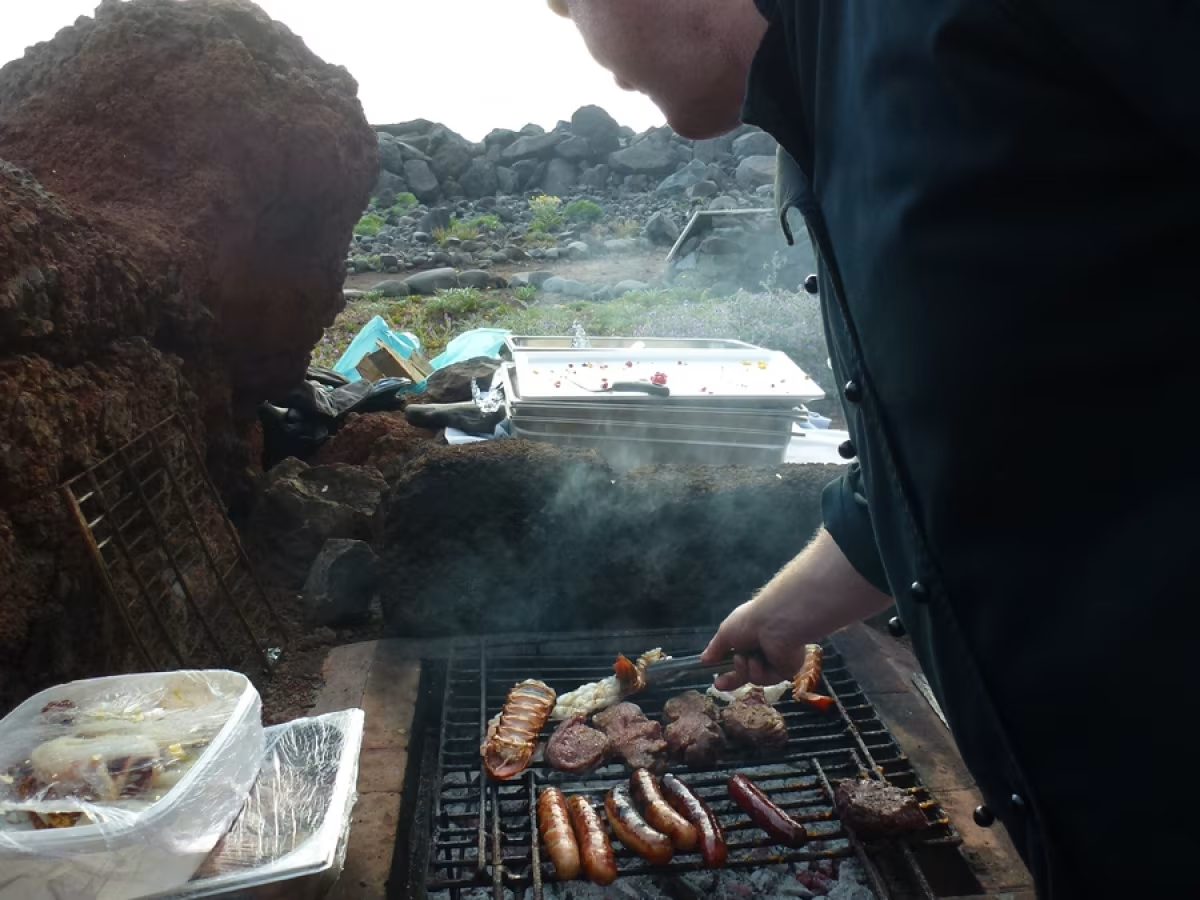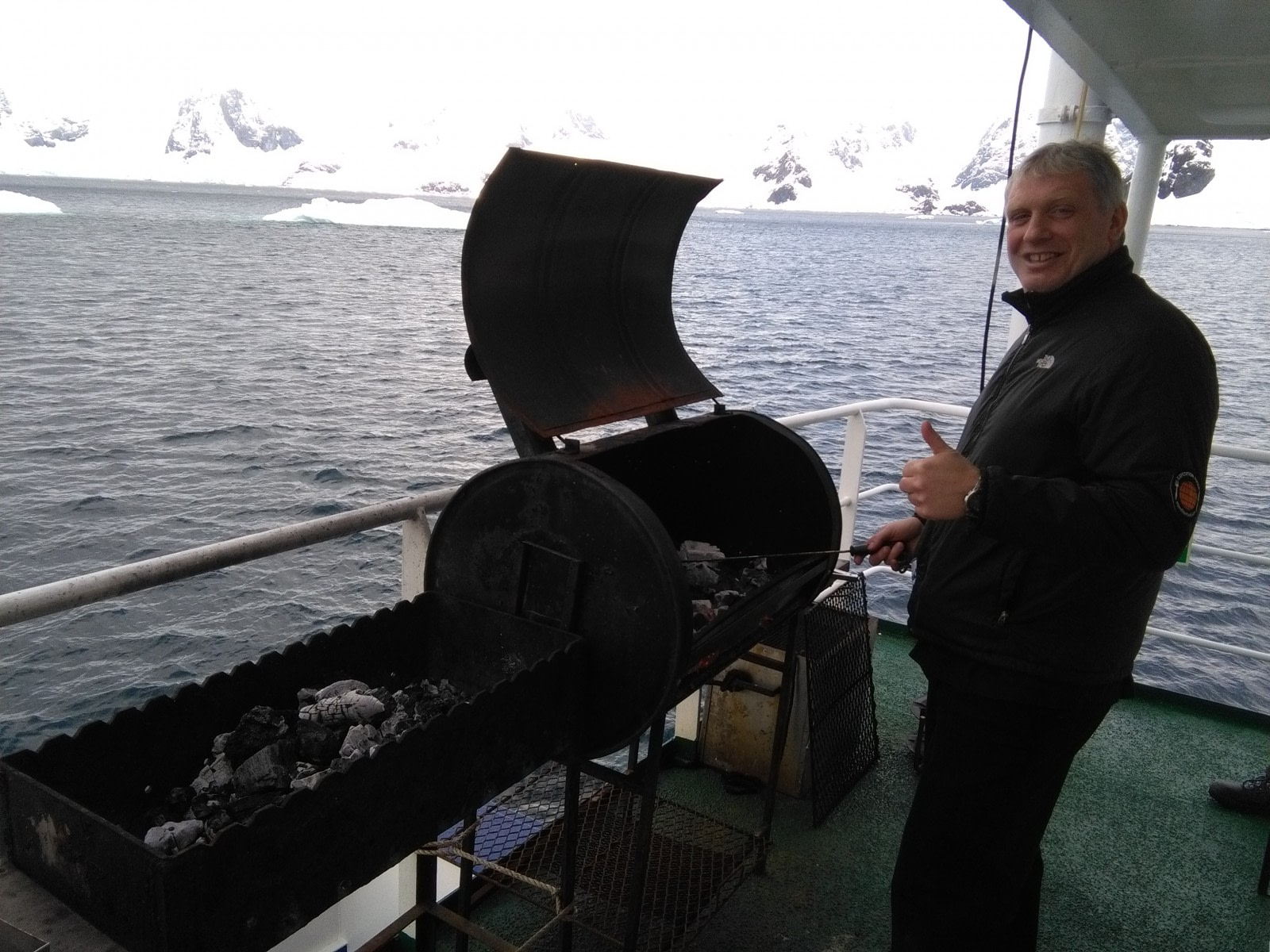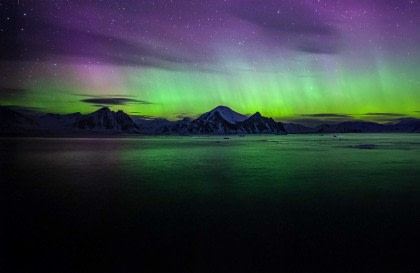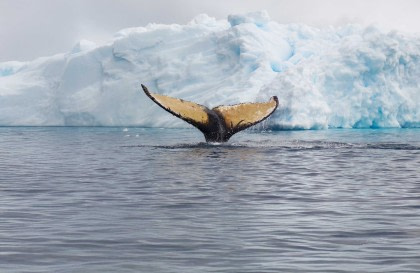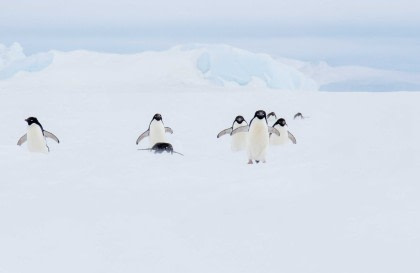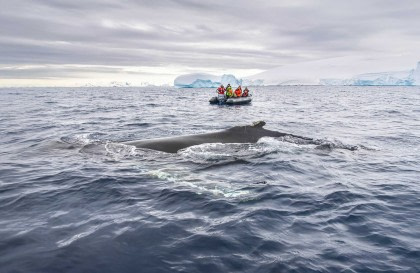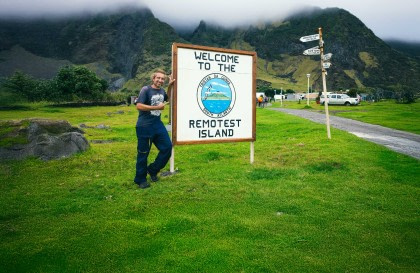The finest food in the farthest places
Polar cruises are luxurious, but they aren’t luxury cruises.
The beds are wonderfully comfortable, but nobody expects goose-down pillows. The bar is appropriately well stocked, but no bottles of triple-cask Macallan 21 glow atop the shelves. The food is delicious, ample, and hearty, but…
Well, it’s delicious, ample, and hearty.
The point: If you’re on a polar cruise that’s worth its salt, so to speak, the luxury won’ be in the ship, it’ll be in the surroundings. After all, it’s an expedition cruise.
But does that mean you’ll get mediocre bill of fare?
Absolutely not, especially if you’re lucky enough to have polar cruise chef Ralf Barthel in your corner. We sat down with Barthel and asked him a few questions about his trade – and how he makes such insanely delicious Falklands toothfish.
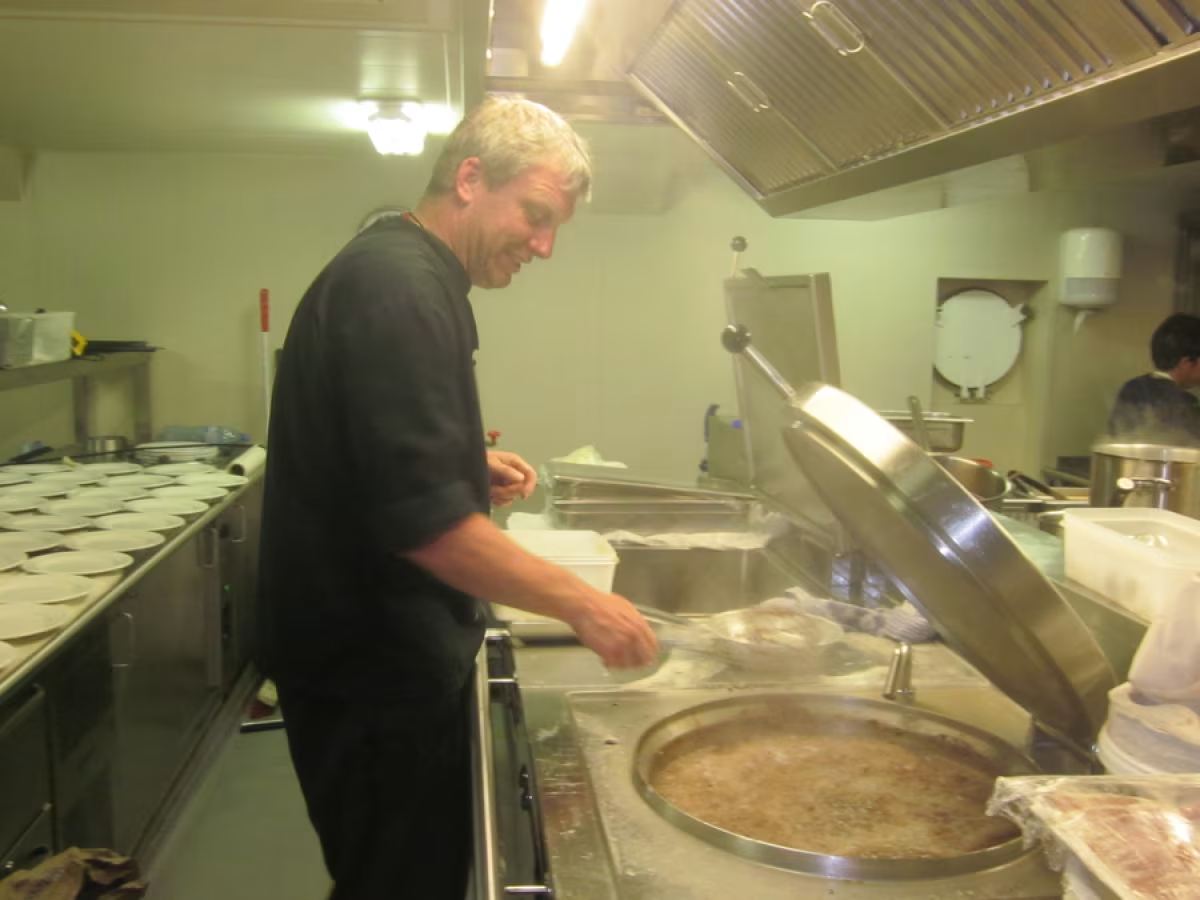
You’ve cooked in a lot of places. What’s the differences between being a chef on a polar cruise as opposed to a fancy five-star restaurant?
First, our main focus is the expedition experience of our passengers. We always remember that they’re here for the landscape, wildlife, and adventure.
This means things like weather, the length of the voyage, the expedition schedule, the nationalities on board, and all kinds of other logistics have to be considered while I’m designing the menus, service style, and dining times.
Another big difference, maybe the biggest, is remoteness: Our ports are so far from mainstream civilization, we have to plan up to six months in advance.
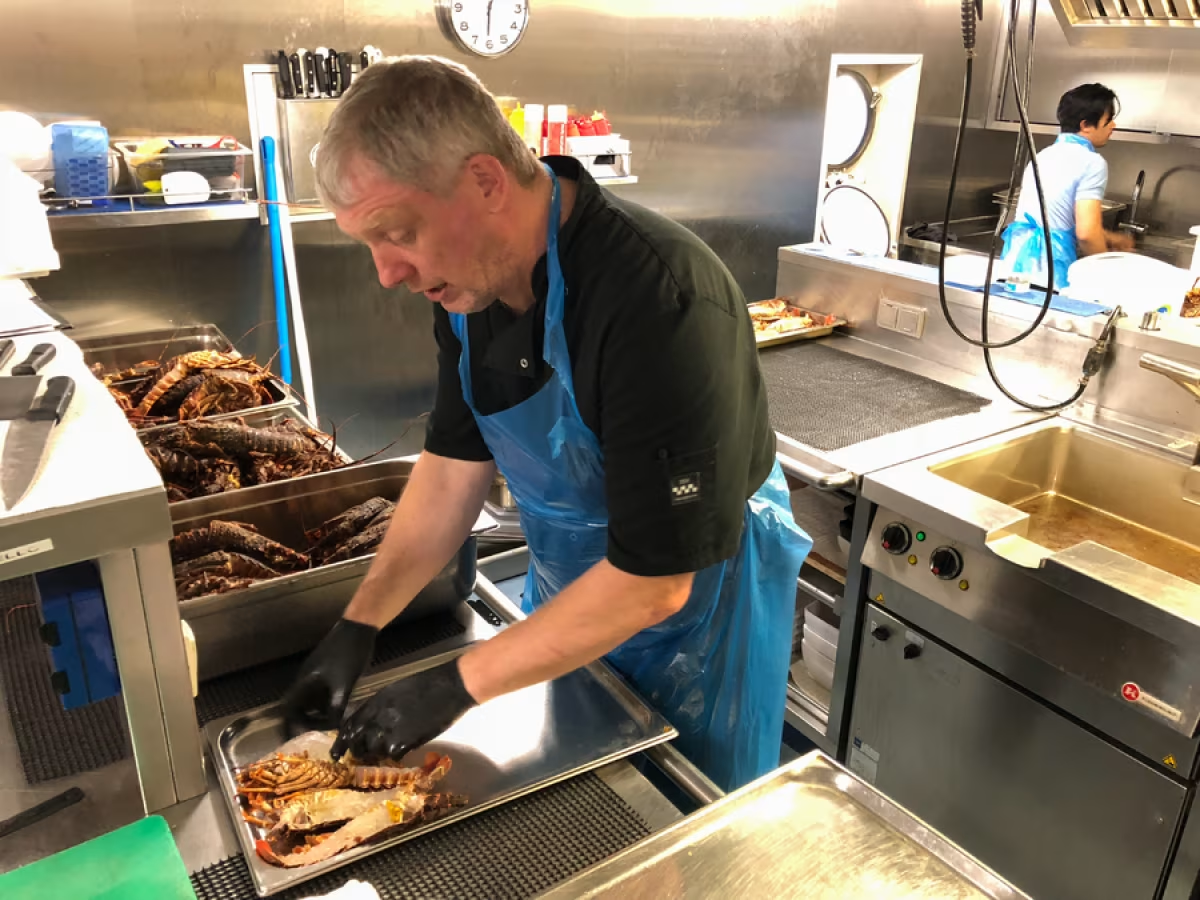
Can’t pop down to the corner market for an extra ketchup?
Not exactly. When you’re out of something in the polar regions, there’s really no chance to resupply. Stock control is vital to the daily operation of the kitchen.
Then there’s weather, which affects everything – not only cooking, but also resupplying. Ice blockages or storms prevent us from making pre-planned landings pretty often. That’s when you know you’re really in the polar regions.
Of course, these are just the unfortunate cases. These interruptions or delays also happen when one of the staff spots wildlife, and that’s always an exciting event.
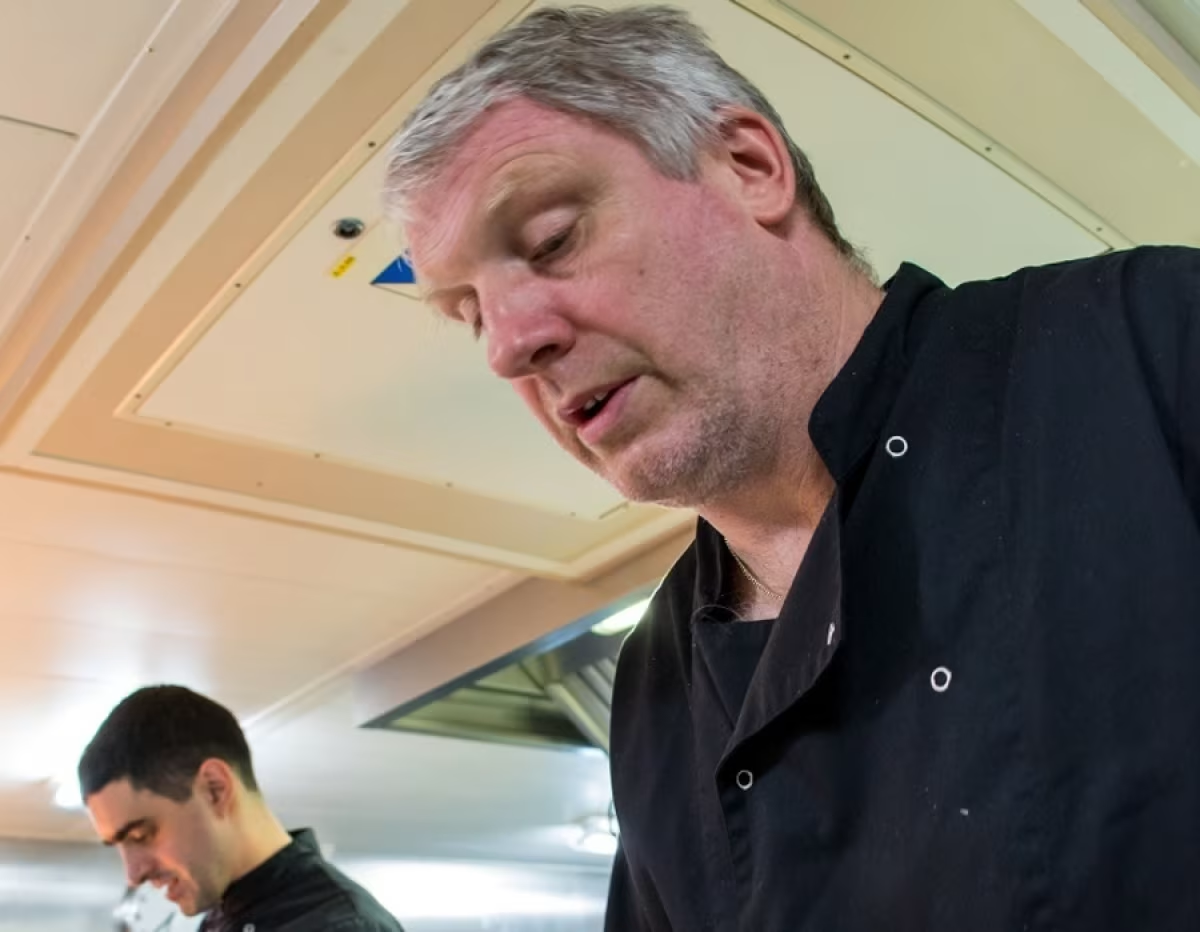
So just as you’re serving a meal you’ve painstakingly planned and prepared, all of a sudden somebody shouts, “Polar bear!”
Right, or “penguins” or “whales” or whatever. But we all understand this, and we manage the event quickly: shortening dinners, serving desserts in the bar so the passengers can watch wildlife from the observation lounge or outer decks.
Sea storms can also be challenging. I remember one dinner where we had only 22 passengers for dessert due to a storm. They were all standing, even the staff.
What led you into polar cruise cuisine?
I’m a German-born and trained chef, and I’ve worked for over 15 years in various culinary management positions. Mostly these positions took place in prestigious five-star hotels and resorts in Europe, America, Australia, and New Zealand.
Then one day I had the opportunity to work on an expedition ship to east Antarctica, and that was it for me. I’ve worked the past 11 years on various expeditions ships.
In that time I’ve cooked in the Arctic, Antarctica, the Russian far east and south, and much of the Pacific and Atlantic: over 100 expeditions, from 77°51 South to 82°13 North.
In 2010 Oceanwide appointed me head chef of Plancius, where I have a team of six. Our aim is to provide a new level of service in expedition cruising. Just because you’re in the wildest regions on Earth doesn’t mean you can’t have top-of-the-line cuisine.
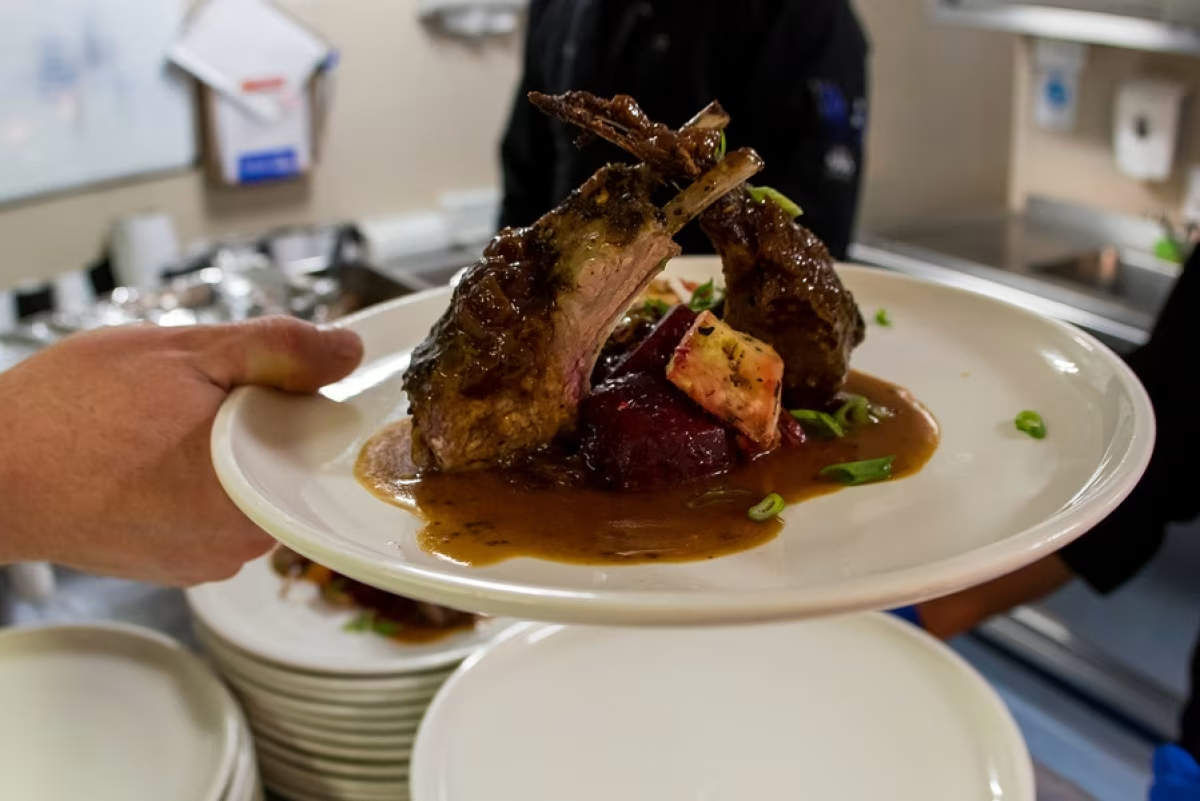
When does top-of-the-line get tough to deliver?
Cooking in rough weather for days at the time is very difficult. It’s also dangerous, because after a while you get fatigued and you can’t concentrate at a hundred percent anymore.
However, this pays off in the polar experience we have alongside our passengers.
Not many chefs can say they’ve taken their break while watching whales or polar bears or penguins, or while taking a Zodiac cruise around Paradise Harbour – my favorite spot.
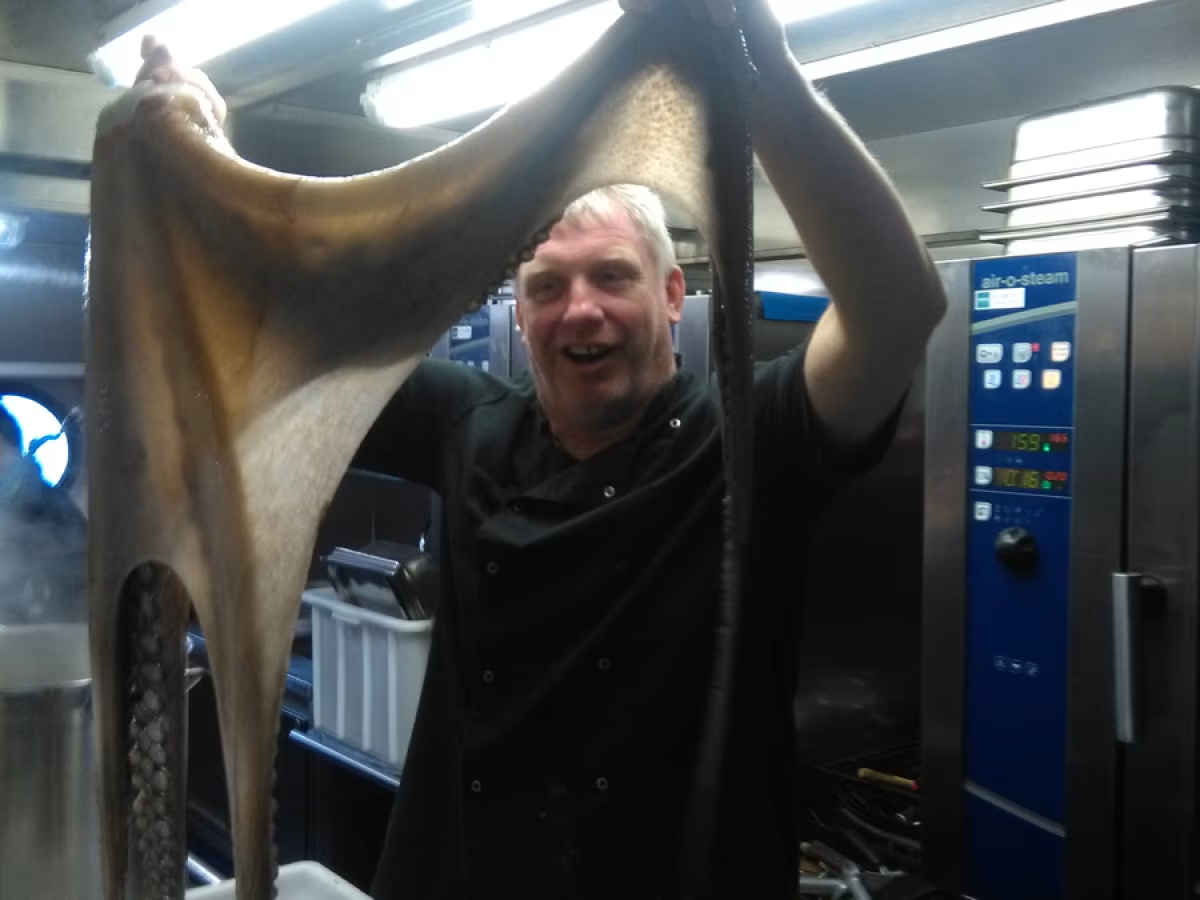
You must’ve had some very memorable moments.
Too many to name. Anyone working on a polar vessel should feel privileged to experience this pristine environment and to become an advocate for it.
What’s your favorite meal to make on board?
Due to the diversity of our passengers, I try to accommodate many styles.
At the moment, for example, we have 12 different nationalities on the vessel. Our menu planning will depend on many points, and a broad variety of cuisine will be offered: Asian, European, Pacific Rim, Latin American, North American, so forth.
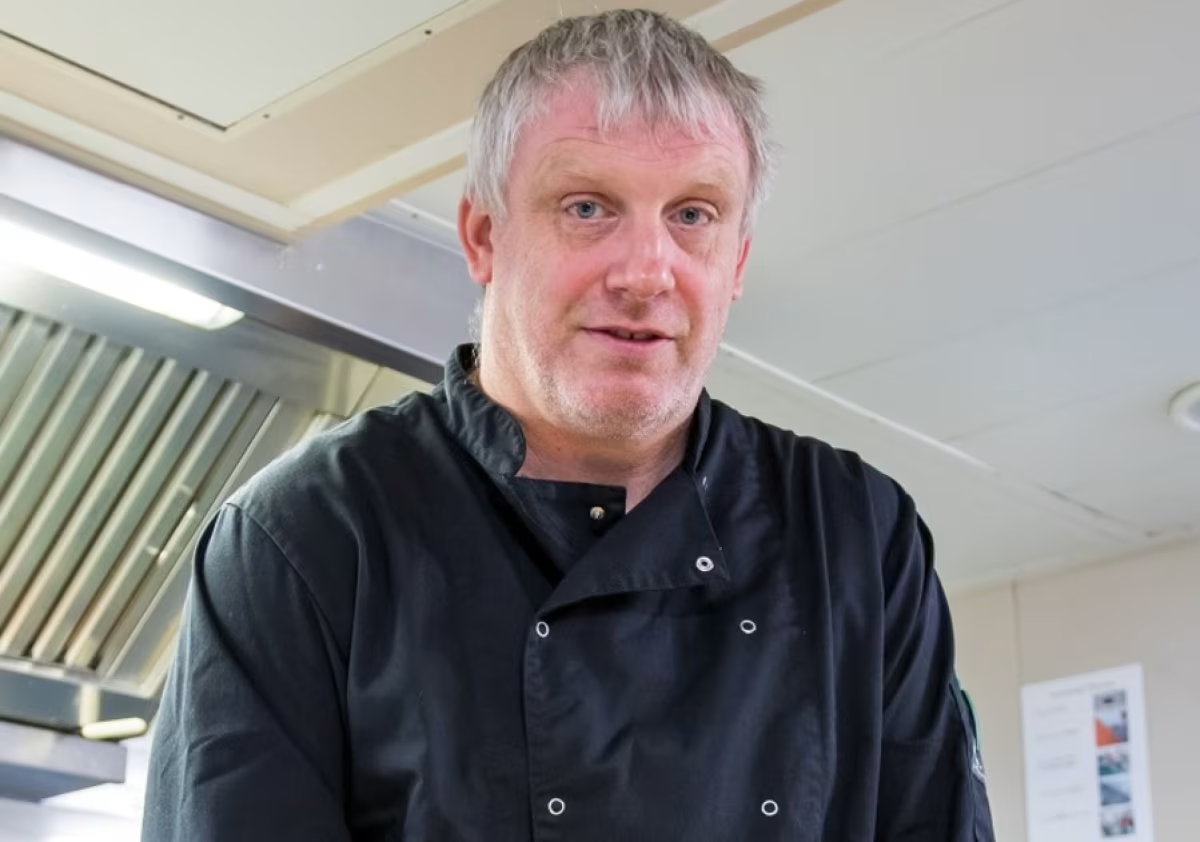
The big challenge is to get the mix right so that no one group feels left out or is “accused” of better treatment. This is especially true on voyages of 20 days or more.
If I can, I always try to get local foods to showcase to our passengers: Patagonian meat and seafood, reindeer from Svalbard, certified toothfish or lamb from the Falklands, some fish and tropical produce during our South Atlantic voyages.
This is hard to do, but it’s worthwhile.
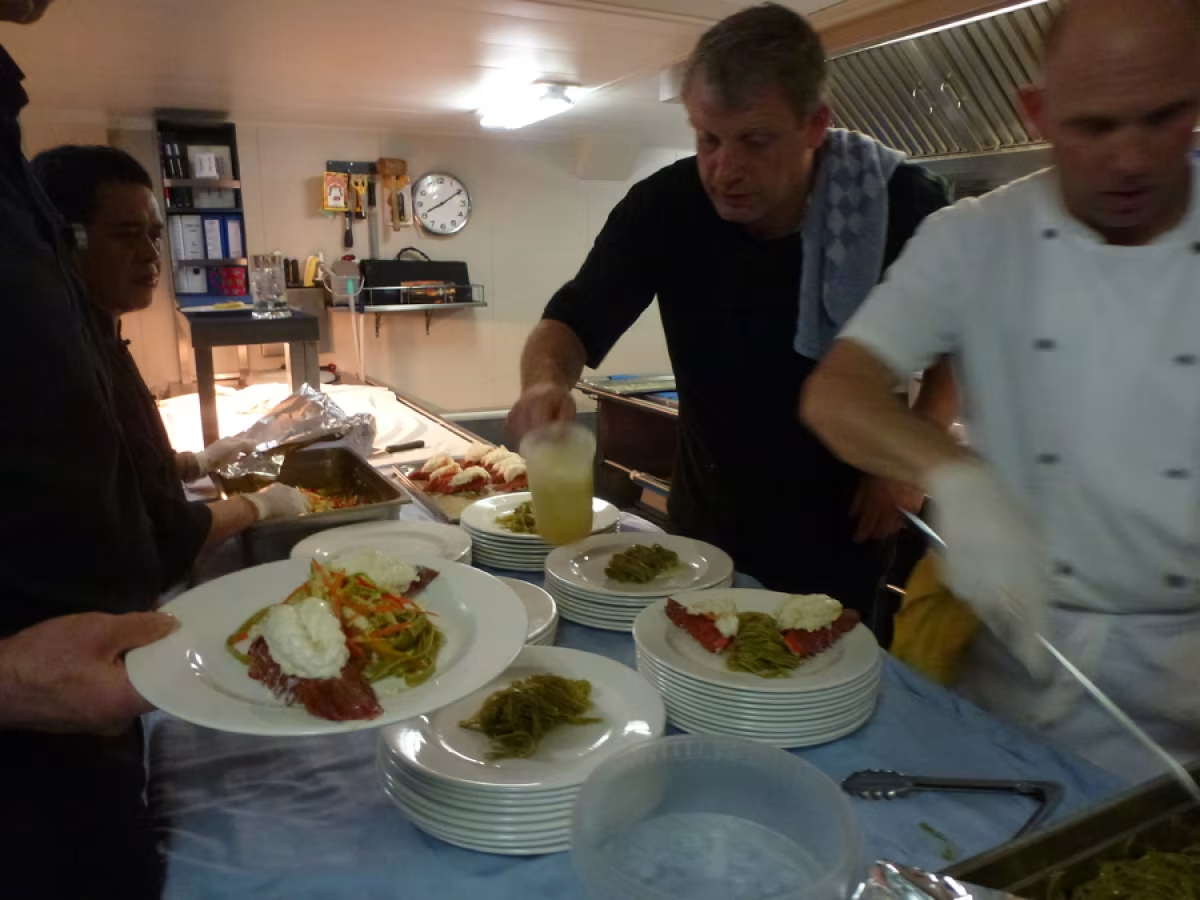
Do you find the passengers recognize your efforts?
Due to the feedback I get from some of our well-traveled passengers, yes. And this is one of the main distinctions of Plancius and our other vessels.
We use our own initiative on a daily basis rather than following corporate guidelines that are largely unnecessary, impractical, and wasteful. I’d much rather work with smaller menus where everything is well prepared, cooked to the point, and presented nicely.
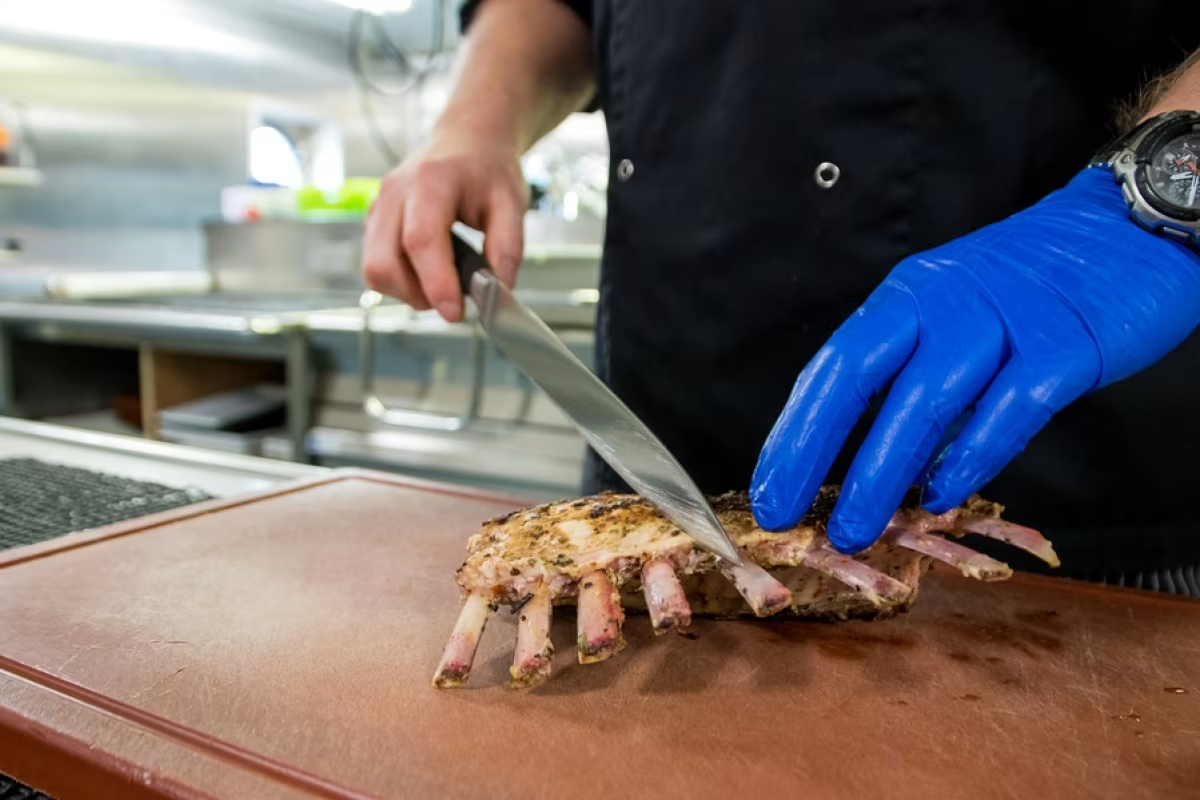
What are the highlights of the job so far?
For one, there are traveling highlights: setting foot on Antarctica at Mawson’s Hut, seeing my first polar bear in Svalbard – and on my birthday, coincidentally.
But I’ve had great moments with the passengers too.
There was this very elderly American travel agent who’d seen most of the world except Antarctica, so we managed to carry him piggy-back to the shore in the Ross Sea. He was so happy, he never left the vessel for the rest of the trip.
Then this Japanese tycoon who’d actually been listed in Forbes, yet he had to borrow $40 from me to buy a souvenir book. He was so embarrassed, and his PA apologized several times.
But I didn’t mind, and they let me keep the change from a rather large bill.
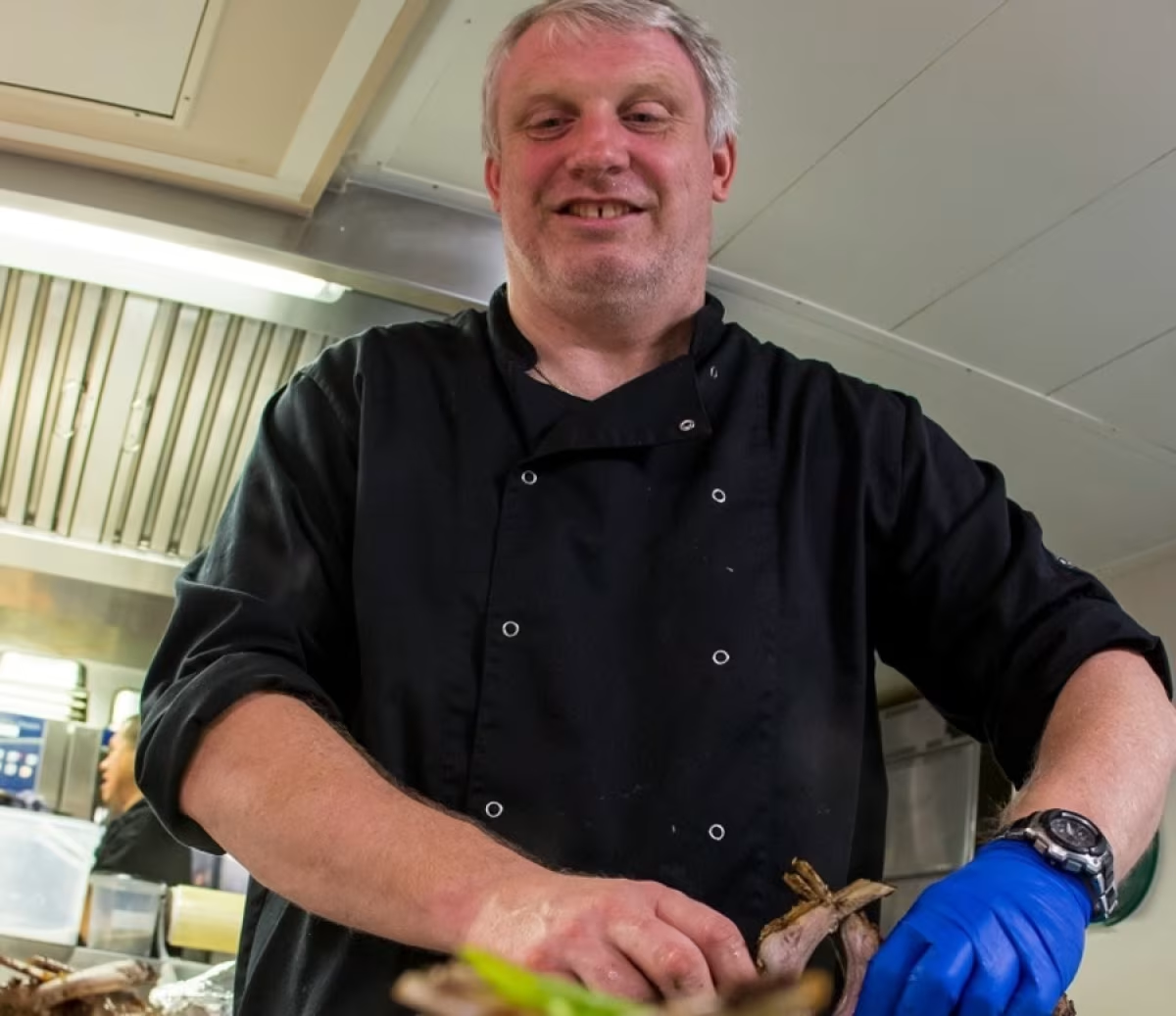
We once had the retired CEO of a huge food company on board. He was a birder and had these state-of-the-art binoculars. When we spotted sharks feeding on a floating whale carcass, which you basically never see, he didn’t even watch.
He was on board only for the birds.
Oh, and that member of an astrophysics team nominated for the Nobel Prize. He could tell you everything you wanted to know about the Southern Cross, but making his own sandwich for an outing was a big challenge for him.
Too many stories to tell…
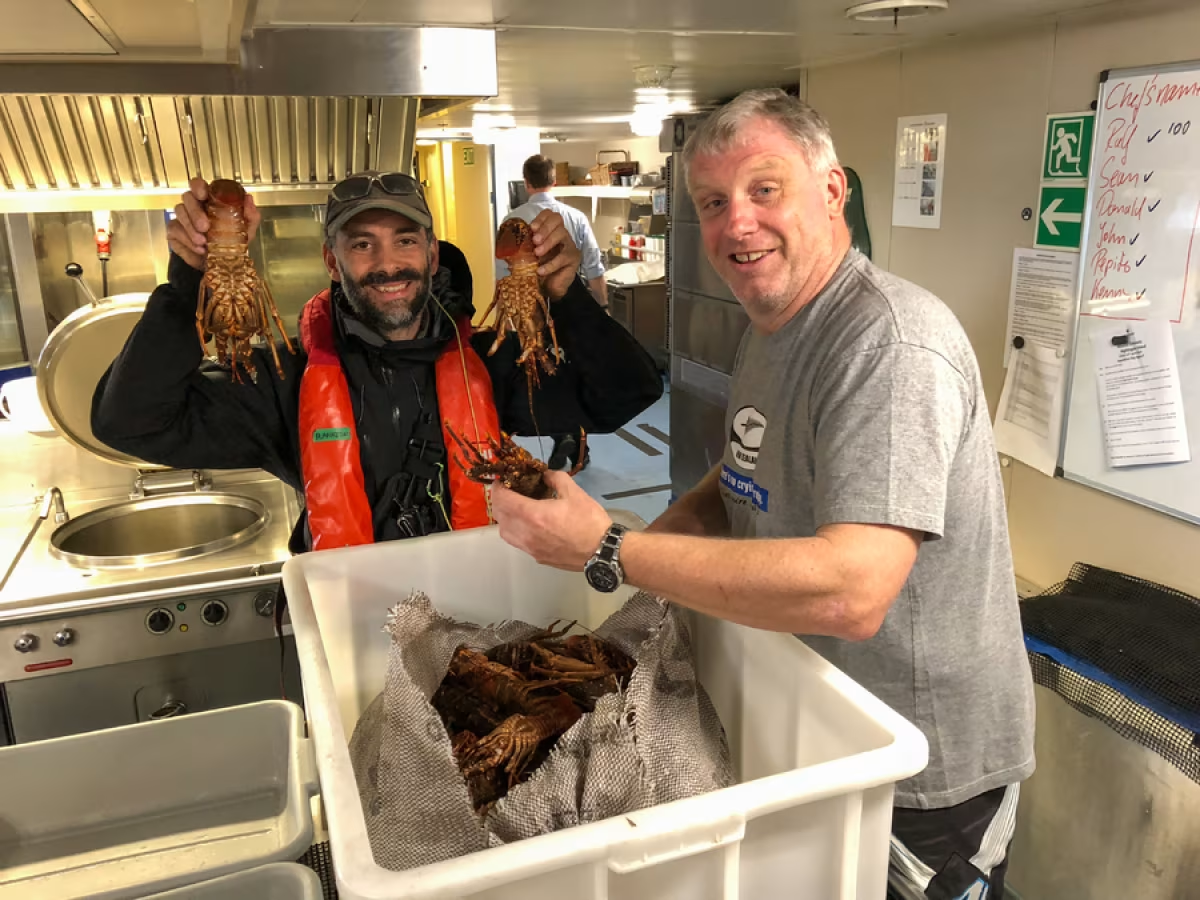
Your former colleagues must be jealous.
The chief financial officer from my previous hotel company was so jealous, he said anytime I want my old job back I can just call him. I haven’t called him yet.
Good move. Last question: favorite meal to make back home?
I usually stick with my traditional German food. I do an annual cook-off for volunteer workers in my local football fan club, and occasionally I like to surprise the guys on big game nights.
Also, my garden BBQs have become a hit among friends and family over the years.
Can we reserve a seat for that right now?
I’ll put you on the waitlist.
